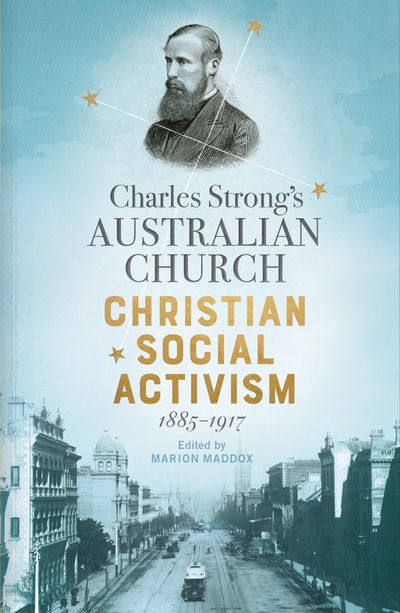Judith Brett on Character
https://www.themonthly.com.au/issue/2023/august/judith-brett/pwc-and-question-character
I am very impressed with Judith’s (if I can be informal in my personal character) essay in The Monthly (August 2023).
There have been a few of us Australian historians and urban sociologists thinking about the concept of character in Australian politics, including politics of the states and territories. This was wonderfully put together in Marion Maddox’s edited collection, Charles Strong’s Australian Church: Christian Social Activism, 1885-1917 (https://www.mup.com.au/books/charles-strongs-australian-church-hardback).
Four chapters were from Judith, Marion, and me. Judith examined the characters of Alfred Deakin and Charles Strong. I spoke to how the Queensland character myth, unfortunately, dismissed the critical thinking on character (the way that Judith exactly captures it), and Marion did a wonderful examination to cap it off in the discourses of religion, culture and politics. I also commend the other essays in the volume from Wayne Hudson, Shurlee Swain, Patricia Curthoys, and Kate Laing, which made important links between intellectual schemas, institutions, and character.
I would highly recommend the reading of Judith’s The Monthly essay for the reason that it contains important linkages to ideas and concepts in thinking about character, and here I have assisted by the following tag list from the essay:
Aggressive Behaviour
Alcohol
Books
Business
Codes of Conduct
Conduct
Confidentiality
Conscience
Consultancy
Ethics
Friendship
Governance
Hard-Working
Identity
Imbalance
Impulses: anger, lust, and greed
Inappropriate Behaviour
Integrity
Keep in Check
Leadership
Managerialism
Mobile sons of aspirational immigrants
Moral Agency (I have extensively written on this topic in the genre of applied philosophy: a major example: https://drnevillebuch.com/synopsis-for-book-project-horizon-worldviews-the-makings-of-a-broad-society-in-queensland-1911-2001-a-philosophic-history/)
Moral deskilling
Old WASP private school boys
Persons
Poms who learnt their trade in the City of London – which is linked to my recent published research note (mapping of Ango-American major belief systems: https://www.academia.edu/104984588/RESEARCH_NOTE_ANGLO_AMERICAN_MAJOR_BELIEF_DOUBT_SYSTEMS)
Professionalism
Profit
Public Apology
Public Interest
Public Purse
Public Service
Quality
Rich Men (and a few wealthy women)
Risk
Schooling
Secularised Core
Self
Self-Restraint
Sense of Commitment
Service and Servanthood
Sexual Abuse
Strength of Will
Taxation
Temptation
The People
Thinking
Truth
Value-Driven
Vulnerability
I was able to pick out the tags in the concept of character, because us Australian historians and urban sociologists have the capacity to think of large multiple ideas in the singular space, not in an exact 60 seconds (as the way the idiot cultural-warriors want to test you, as if life was a television game show), but pretty much straight away in a matter of minutes. We read the literature extensively and that is how it sticks in memory. That is the character of an educated person.
My challenge is that this character is lost in the general population for three reasons:
- Most in the population does not have the character of an educated person; and it is due to:
- Our institutions discourage persons reading critically (i.e., if a novel one of serious intellectual intent) and this because we have too much leadership in the “public relations” mindset of a singular messaging; and importantly,
- For learning Australian intellectual history and local studies, academic and community education have been removed periodically over the last century – the dirty acts of institutional politics are nothing new.
Featured Image: Charles Strong’s Australian Church, Christian Social Activism, 1885-1917, Melbourne University Press, 2021.

Neville Buch
Latest posts by Neville Buch (see all)
- J. D. Vance’s Insult to America is to Propagandize American Modernism - July 26, 2024
- Why both the two majority Australian political parties get it wrong, and why Australia is following the United States into ‘Higher Education’ idiocy - July 23, 2024
- Populist Nationalism Will Not Deliver; We have been Here Before, many times… - July 20, 2024
